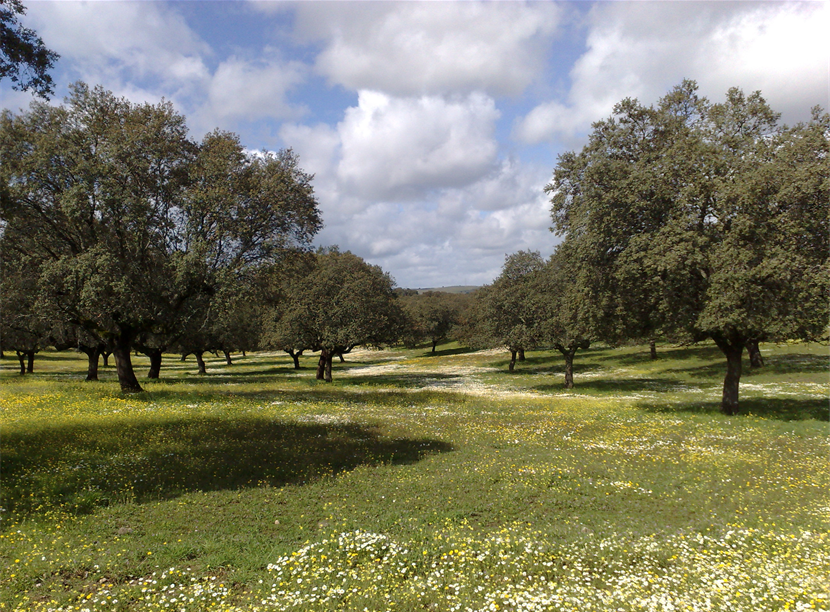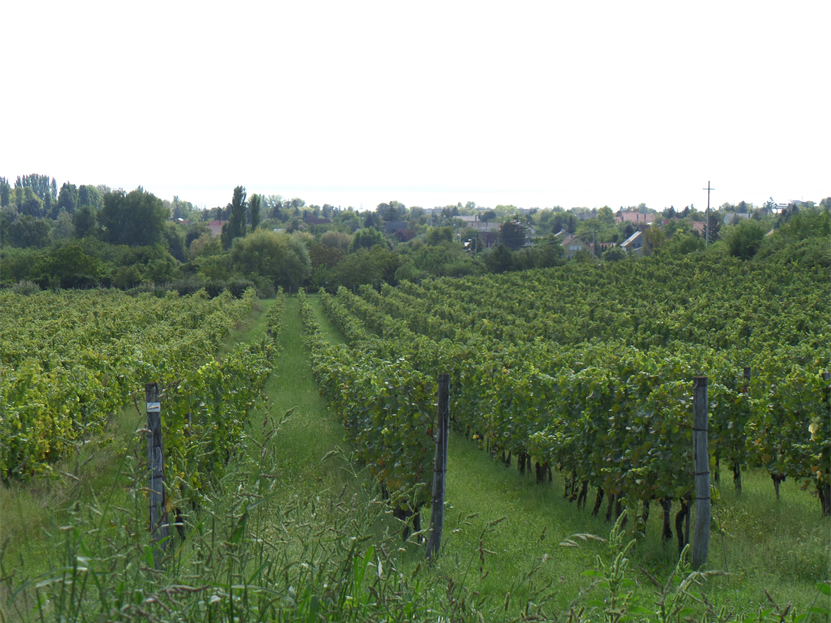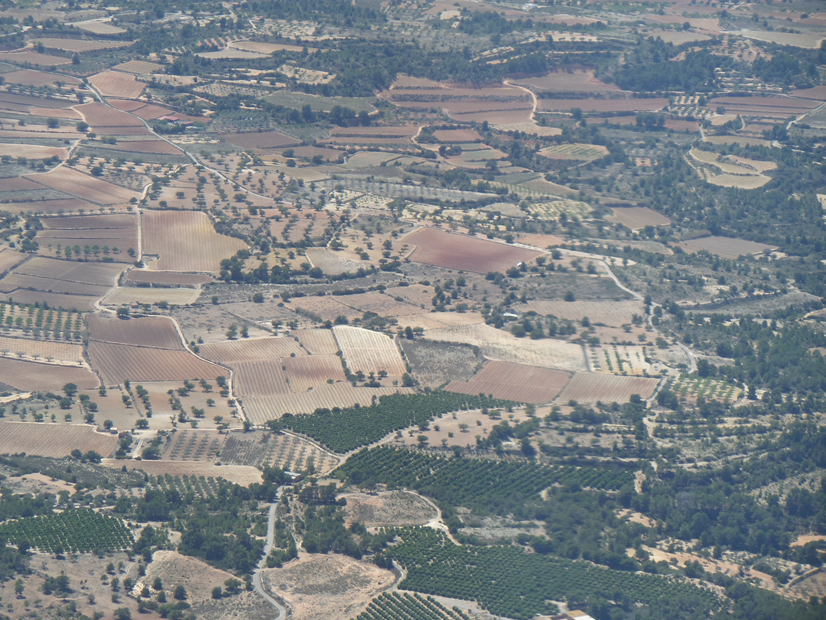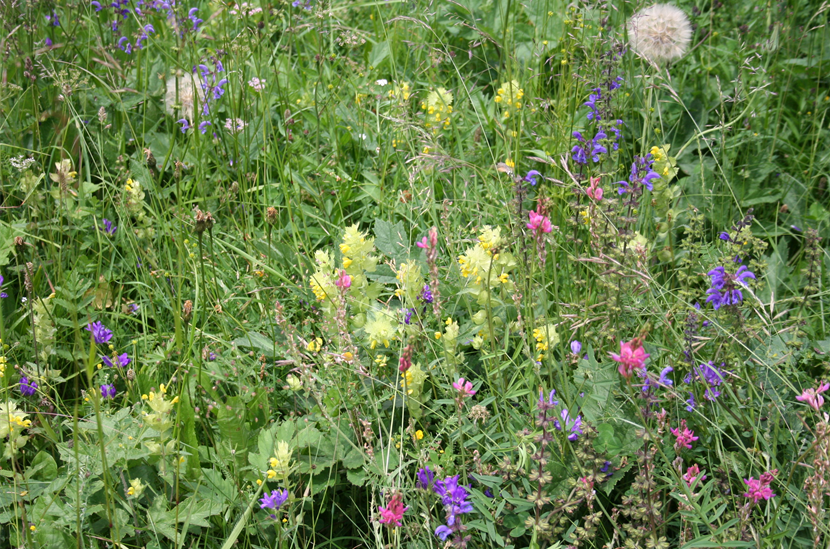Key issues and strategies for agro-ecological transitions
Across the case studies in 15 European countries, more than 100 barriers and drivers of agro-ecological transitions were identified in the interviews and workshops with the members of the case study Multi-Actor Platforms (MAP) (see Deliverable D3.4 in English for more details).
D3.4 - Report on key barriers of AEFS in_Europe and co-constructed_strategies (link to Zenodo)
Three broad themes of clusters of barriers and drivers were derived from analysis of the inventory of barriers and drivers: i) lack of knowledge and social capital; ii) lack of added value, processing and market access; iii) ineffective policy design. The analysis focussed on barriers that hinder a transition to agro-ecological farming, with consideration also given to the drivers which are discussed in the section on uncertainties. The three themes are summarized below.
Lack of knowledge and social capital: The most commonly identified barrier
is the lack of knowledge of specific agro-ecological practices and their sustainability benefits, and the economic
opportunities and associated uncertainties for creating added value from agro-ecologically produced goods. Such barriers
were reported for most of the case studies, and reflects the knowledge-intensive character of agro-ecological farming.
These barriers relate mainly to a lack of knowledge amongst farmers, and highlight the need for specialised knowledge
for advisors and teachers working in vocational schools. Two main constraints for farm advisory services need to be
considered; they can be underfinanced or they have difficulties in recruiting qualified advisors. A related weakness is
one of limited coordination amongst AKIS actors, and the lack of networks for knowledge sharing involving farmers,
advisors and researchers.
In many case studies there was evidence of barriers to agro-ecological transitions due to a low capacity and willingness
to cooperate which, in turn, was due to weak social capital and individualism of, and rivalry between, farmers. For case
studies in Eastern Europe, reluctance to cooper-ate can be explained by the negative experience of nationalised
collective agricultural systems imposed by the communist regime. In these contexts, the term ‘cooperation’ has a
negative connotation. The lack of confidence and trust in agricultural cooperatives, and resulting low willingness to
cooperate, is closely linked to economic barriers. For example, a lack of willingness to cooperate may inhibit options
for shared purchasing of storage and processing infrastructure, or direct marketing.
Lack of added value, processing and market access: Barriers which were commonly identified across several case studies related to the economic sustainability of agro-ecological farming within the framework of the current conventional food systems. A lack of access to finance and other issues related to investments were the most common barriers. A diverse set of issues relating to the lack of value-added by agro-ecological production was identified in most of the case study countries, including low demand and productivity was expressed by low prices rather than production costs, which led to issues in logistics of storing, processing, and selling the agro-ecological products. The availability of labour and market concentration were also identified as significant issues.
Ineffective policy design: Specific barriers due to policies covered the unsustainable prescriptions and lack of flexibility in implementation and monitoring. This cluster included the bureaucracy of the policy support, and lack of targeting or public procurement, present in only a few case studies each.
The clustering of barriers and drivers provided a means of viewing the challenges to
agro-ecological transition from specific angles that inform the identification of specific actions in the strategic
pathways, as well as the analysis of market and policy instruments that can foster transition processes. However, the
different barriers and drivers do not occur in isolation. The existence of some barriers reinforces the pace at which
other barriers develop over time. The case studies demonstrate the interconnectedness and interdependencies between
different barriers, and that the issues of information, economy and policy are intimately linked in the European
agro-ecological landscape and making progress from one perspective requires dealing with the other two.
Addressing these different barriers requires the involvement of actors with different roles and representing multiple
interests (multi-stakeholder networks) and innovative forms of coordination and cooperation. In particular in cases
characterised by a low level of cooperation between actors and at an initial stage of agro-ecological transition,
authorities (e.g. Ministries of Agriculture) are key actors which are in the position to initiate, manage and direct
governance networks towards the agro-ecological transition pathways. In addition, charismatic farmers, advisors and
NGOs, are also important when the network is new and subject to change, multi-stakeholder hubs are the core of more
mature and stable networks.
Main lessons from the co-construction of strategies for agro-ecological transitions
The Multi-Actor Platforms in each case study proposed strategic pathways to address the key barriers and drivers for initiating or enhancing agro-ecological transitions.
A first key lesson from the co-construction relates to the importance of mature social capital and improved farmer knowledge of the benefits of agro-ecological practices and economic opportu-nities for successful agro-ecological transitions. Mature social capital is critical for the institutional changes proposed such as new knowledge networks. Case studies identified the important role of intermediaries to facilitate the generation of social capital and the institutional changes, e.g. trusted advisors reaching out to farmers and bringing actors together. In cases where agro-ecological transitions are initiated in conventional farming systems, the institutional changes proposed need to recognise traditional values and attitudes of farmers to avoid incompatibility with views about a ‘good farmer’. However, improving social capital is a long-term process that requires an enabling policy environment through support for capacity building and for invest-ments to normalize or institutionalise new forms of cooperation.
A second key lesson of the co-construction of the strategies across the case studies is the need for strengthened collaborative actions and collective institutions to increase negotiating power within the value-chain. This would enable higher prices to be obtained for agro-ecological products and realise the potential of agro-ecological farming to be economically viable. Such processes need to be supported by policy and the public sector, to address issues of economic exploitation and power relations, as well as tackling problems of overconsumption and food waste in food chains with their implications for public health, social justice and food security (Lampkin et al., 2020).
A third key lesson of the co-construction of the strategies is the importance of changes in consumer behaviour and diets, in particular if transformative change is the main objective of the agro-ecological transitions. More sustainable human diets which contain less animal products enable large-scale implementation of agro-ecological practices without overstretching domestic agricultural land and avoiding deforestation. This highlights the need for a wider food system perspective of agro-ecological transitions, which is also supported by the results of the territorial level analysis in UNISECO (see Deliverable D4.3 for more details).
Some studies indicate that trends of increased demand of consumers for food labelled as healthy, sustainable and local have been further accelerated by the COVID-19 pandemic (eg. Vittuari et al., 2021). If sustained after the end of the pandemic, these trends in consumer behaviour could be reinforced by consumer awareness campaigns and public procurement programmes in schools and canteens, as proposed in the co-constructed transition strategies. This would help overcome barriers such as market saturation of organic products. However, reorientation to direct consumer sales is not always possible (particularly for small-scale farmers), or can entails significant financial implications.
Finally, with regard to the innovative market and policy instruments to promote the agro-ecological transition strategies at a case study level, local actors emphasized that agro-ecology is knowledge-intensive and that different combinations of market and policy incentives are important to be able to tackle the knowledge-related challenges of the transition pathway.
Three forms of those knowledge-related challenges are:
- Knowledge creation: this challenge refers to the need for developing research, demonstration fields and advisory services around agro-ecological issues, accompanied by incentives and infor-mation for value chain actors and consumers. Key market and policy incentives to face this chal-lenge are agri-environment payments and knowledge promotion.
- Knowledge diffusion: this challenge refers to the need for facilitating the introduction of agroe-cological approaches and practices in value chains. Key market and policy incentives are certifi-cation schemes and food policies.
- Capacity building: this challenge refers to the promotion of collective action, peer-to-peer learn-ing and networking to re-design the food system. Key market and policy incentives are network-ing and cooperation. The objective of knowledge promotion can be achieved through dedicated policy measures and a broad range of market and policy incentives. Agro-ecological transition is a knowledge intensive process, evidence of the challenges to which was identified in case studies in relation to knowledge, starting from knowledge creation to knowledge diffusion through to capacity building. While practice-based payments and advisory services were recognized as very important for knowledge creation, certification schemes and food policy are crucial for the knowledge diffusion at value chain level. The capacity building needed to re-design the local food system can be only achieved through a mix of local interventions such as regional policies and networking instruments.
See for more details on the assessment of market and policy instruments Deliverable D5.4 on innovative market and policy instruments to promote the agro-ecological transition strategies. Specific key results have been summarised in case study issue briefs adding value and providing new insights to the local dialogue relating to farming policies (e.g. CAP strategic plans), farming practices and agro-ecology, or to contribute to developing or addressing needs which emerged from their community of practice.
D5.4 - Report on innovative market incentives and policy instruments favouring conversion pathways to AEFS (link to Zenodo)
D5.4 - Annex 1: Case study summaries (link to Zenodo)
Issue briefs
Austria
- UNISECO H2020 issue brief: Mitigation of climate change by humus formation and regenerative arable farming in Eastern Austria
- UNISECO H2020 issue brief: Eindämmung des Klimawandels durch Humusaufbau und regenerativen Ackerbau in Ostösterreich
Czech Republic
- UNISECO H2020 issue brief: Enhancing cooperation and capacity building to maintain arable land protection on organic dairy farms in the Czech Republic
- UNISECO H2020 issue brief: Posílení spolupráce a budování kapacit k zachování ochrany orné půdy na ekologických mléčných farmách v České republice
France
Germany
- UNISECO H2020 issue brief: Adding value to agro-ecological practices in market-oriented arable farming
- UNISECO H2020 issue brief: Marktimpulse für eine gesteigerte Wertschöpfung durch agrarökologische Praktiken im marktorientierten Ackerbau
Greece
- UNISECO H2020 issue brief: Pathways of peach growers for a transition towards sustainability: an eco-efficiency and input substitution tree crop-based farming system in Imathia, Greece
- UNISECO H2020 issue brief: Η πορεία της παραγωγής ροδακίνων προς τη βιωσιμότητα: βελτίωση της αποδοτικότητας με εισροές και πρακτικές φιλικές προς το περιβάλλον
Hungary
- UNISECO H2020 issue brief: Soil conservation farming in Hungary - Practical lessons learnt on farm level
- UNISECO H2020 issue brief: Gyakorlati ajánlás: Talajkímélő gazdálkodás Magyarországon - Tanulságok és legfontosabb üzenetek
Italy
- UNISECO H2020 issue brief: Enhancing knowledge exchange for the adoption of agroecological practices in vineyards: the Chianti Biodistrict
- UNISECO H2020 issue brief: Migliorare lo scambio di conoscenze per favorire l'adozione di pratiche agroecologiche nei vigneti: il "Biodistretto del Chianti"
- UNISECO H2020 issue brief: Promoting cropping system diversification in a highly specialised and market-oriented winegrowing area
- UNISECO H2020 issue brief: Favorire la diversificazione colturale in un'area specializzata nella produzione di vino e orientata al mercato
Latvia
- UNISECO H2020 Issue brief_Strengthening Agro-Ecological Farming Practices and Economic Viability of Organic Dairy Farms in Latvia
- UNISECO H2020 Issue brief_Stiprinot agro-ekoloģiskās prakses un bioloģiskās piena lopkopības ekonomisko ilgtspēju Latvijā
Lithuania
- UNISECO H2020 issue brief: Improving accessibility to agroecological farming knowledge and practical skills of Lithuanian farmers to support the transition to agroecology
- UNISECO H2020 Problematikos santrauka: Agroekologinio ūkininkavimo žinių ir praktinių įgūdžių prieigos gerinimas Lietuvos ūkininkams siekiant sustiprinti perėjimą prie agroekologinio žemės ūkio
Romania
Spain
- UNISECO H2020 issue brief: Farmers' cooperation and networks, a key driver for the transition to agro-ecological farming systems in Navarra and the Basque Country
- UNISECO H2020 issue brief: Cooperación y redes de productores, un impulsor clave de la transición hacia la agroecología en el País Vasco y Navarra (España)
Sweden
- UNISECO H2020 issue brief: Agro-ecological diversification to produce more food from ruminant farms in Sweden: possibilities for economic and environmental sustainability
- UNISECO H2020 issue brief: Agroekologisk diversifiering för produktion av mer mat från gårdar med idisslare i Sverige: möjligheter för ökad lönsamhet och lägre miljöpåverkan
Switzerland
- UNISECO H2020 issue brief: Reducing the uncertainties about income alternatives to intensive animal production in the Swiss Lucerne Central Lakes region
- UNISECO H2020 issue brief: Einkommensalternativen zur intensiven Tierproduktion in der Region Luzerner Mittellandseen: Verringerung der Unsicherheiten



